Archive for March, 2020
Earn Money Switching to Electric Forklifts
It’s a very different environment today than just a few weeks ago. The Coronavirus (COVID-19) crisis has many businesses worried about finances, the future, or, most likely, both. Thinking outside the box is critical to stay afloat during these difficult times. Switching to electric forklifts can help.
To help you find money to bolster your budget, we want to make you aware of a program offered by Beyond Energy. The program allows companies with electric forklift fleets to make money from California’s Low Carbon Fuel Standard (LCFS). It monetizes sustainable practices like using material handling equipment powered by low-carbon electricity.
Beyond Energy works with logistics firms, grocers, healthcare companies, beverage companies, and other warehousing operations at more than 200 facilities across California. Learn about the benefits to decide if the program is right for you.
Who is Beyond Energy?
Beyond Energy is a regulated party in California’s LCFS program. They aggregate LCFS credits and reinvest the value into sustainable operations, focusing on forklift fleets and truck refrigeration units.
What is the low carbon incentive?
The California Air Resources Board (CARB) designated electricity used in forklifts as a low-carbon fuel effective January 1, 2016. Since then, electricity used in forklifts can generate credits in the program.
What is an LCFS credit?
An LCFS credit is an environmental commodity representing a reduction in greenhouse gas (GHG) emissions. Each credit has value to regulated entities that generate deficits in the program.
How does a company generate a deficit?
Deficits are generated by high-carbon fuels, mainly by gasoline and diesel refiners. In other words, refiners producing a high-carbon fuel, typically used in what would be considered an on-road application, are penalized and must offset that penalty by purchasing credits.
What kind of forklifts can generate credits?
Forklifts and forklift fleets that use electricity can generate credits. Refiners, or other regulated entities, buy these credits to offset deficits caused in the program.
How much does the program pay?
Beyond Energy will pay customers at least $500 per charging asset per year ($125 per quarter). The average warehousing facility can generate tens of thousands of dollars from LCFS credits annually.
What is the advantage of using Beyond Energy?
As an LCFS market aggregator, Beyond Energy is a shield to protect you from the regulator. They assume all regulatory and compliance risks as part of their agreement.
How often will I get paid if I use Beyond Energy?
The company pays customers quarterly.
Can I sign up for the program myself?
Yes, you can; however, it may take up to three years for individual facilities to generate enough credits to sell in the marketplace. Beyond Energy provides a way to get that value quarterly, rather than waiting over time—and ensures you get paid on time, without any risk, and without heavy lifting on reporting.
How do I contact Beyond Energy?
Send an email to philip@beyond-energy.com or joe@beyond-energy.com. You can also contact your Toyota Material Handling Solutions Account Manager or CSS Manager.
It’s important to note that Beyond Energy will need to conduct an initial survey of your equipment, including batteries, battery chargers, and forklifts in operation. We encourage you to contact Beyond Energy now to prepare for the future. The sooner you start the process, the faster your checks can come in.
We’re here to help. Stay safe, and call us if you need parts, service, or anything else during this uncertain time.
A Message During the COVID-19 Pandemic
Dear Valued Customers and Partners,
The evolving situation with the Coronavirus (COVID-19) pandemic has all our attention. Toyota Material Handling Solutions (TMHS) is open and focused on continuing to serve your material handling needs while maintaining the health and safety of our associates, as well as yours.
Service technicians, parts representatives, and transportation drivers remain on the road to ensure that your material handling fleets are operational. They observe heightened hygiene procedures, including washing hands frequently, wiping down surfaces with disinfecting wipes, and maintaining prescribed social distances. Effective March 27th, we have implemented additional services to help prevent the spread of COVID-19 by eliminating personal contact with technicians during service calls.
- After hours service
- Outdoor “parking lot” service
- Free cartage to TMHS’ shop
- Digital condition reports
Account Managers and Customer Service Sales Representatives have replaced face-to-face meetings with phone calls, texts, emails, or video conferencing. DocuSign is being used instead of paper contracts whenever possible.
Our offices are currently following all Federal, State, and local government regulations with non-essential personnel working remotely. TMHS’s leadership team meets daily via conference calls to assess our service levels and fulfill our organizational commitments while ensuring safety.
We are taking these measures because your business is essential to us. Please feel free to contact us at 866-794-5438 if you need assistance during this difficult time.
Sincerely,
Dr. Shankar Basu
President and CEO
